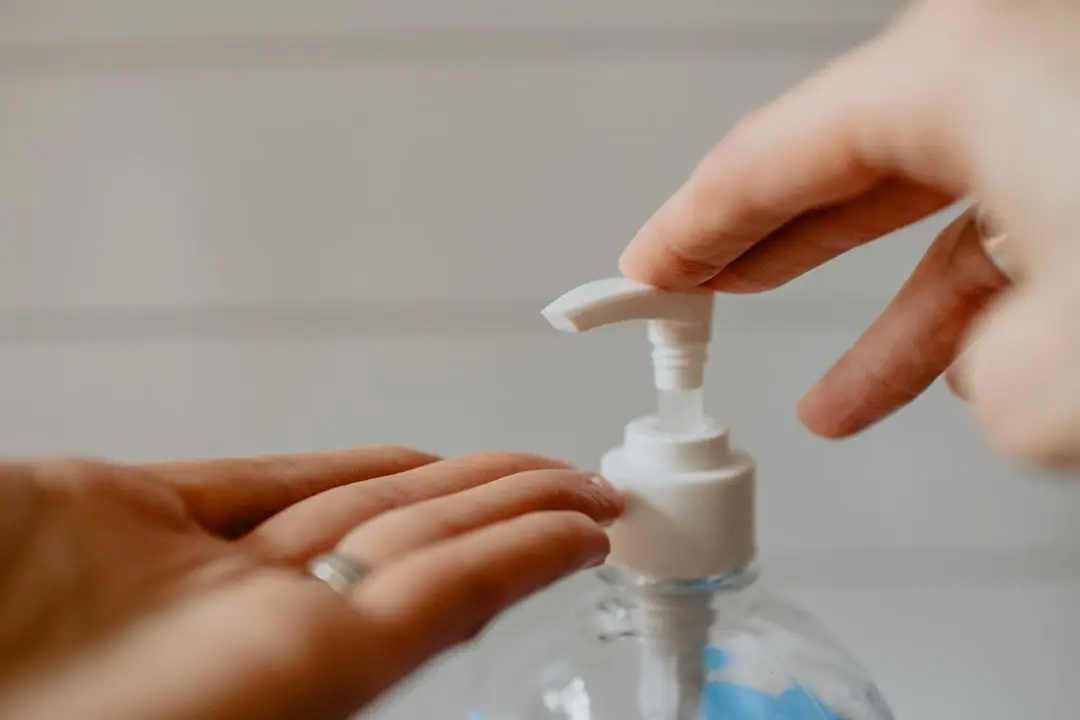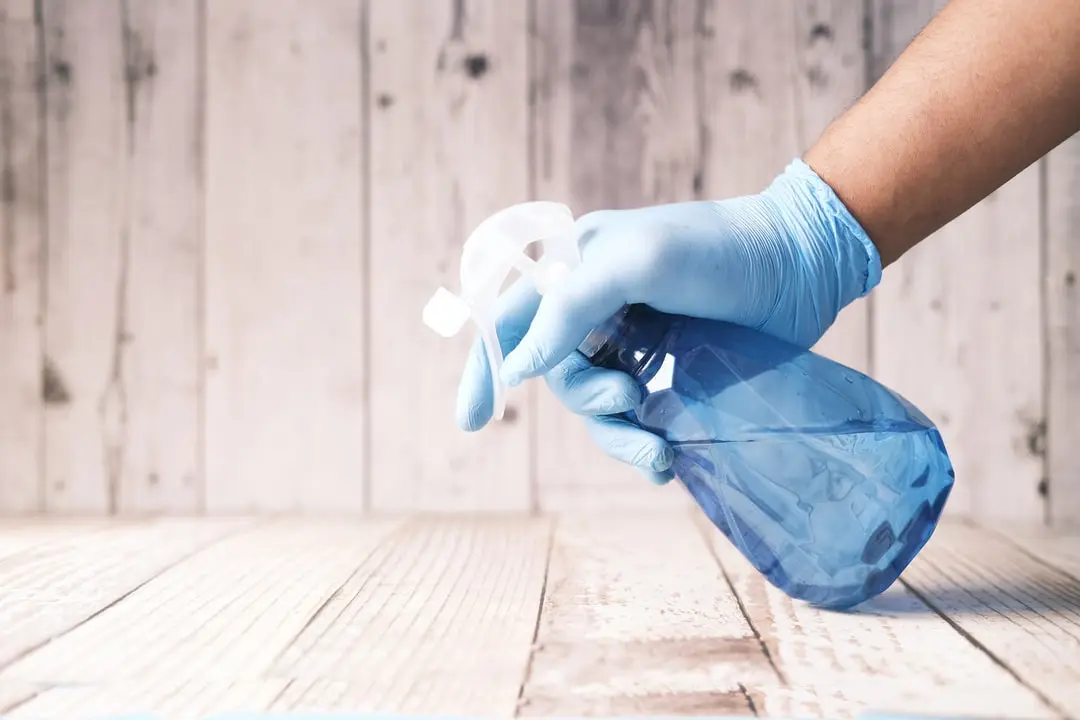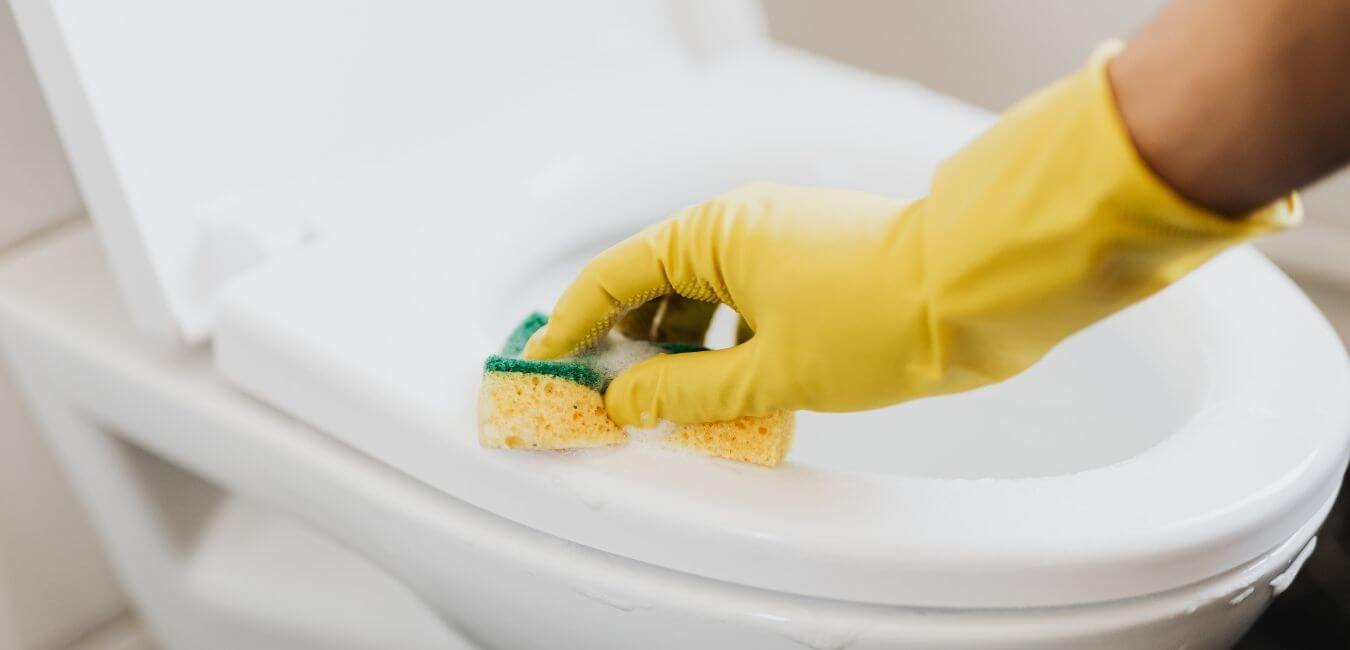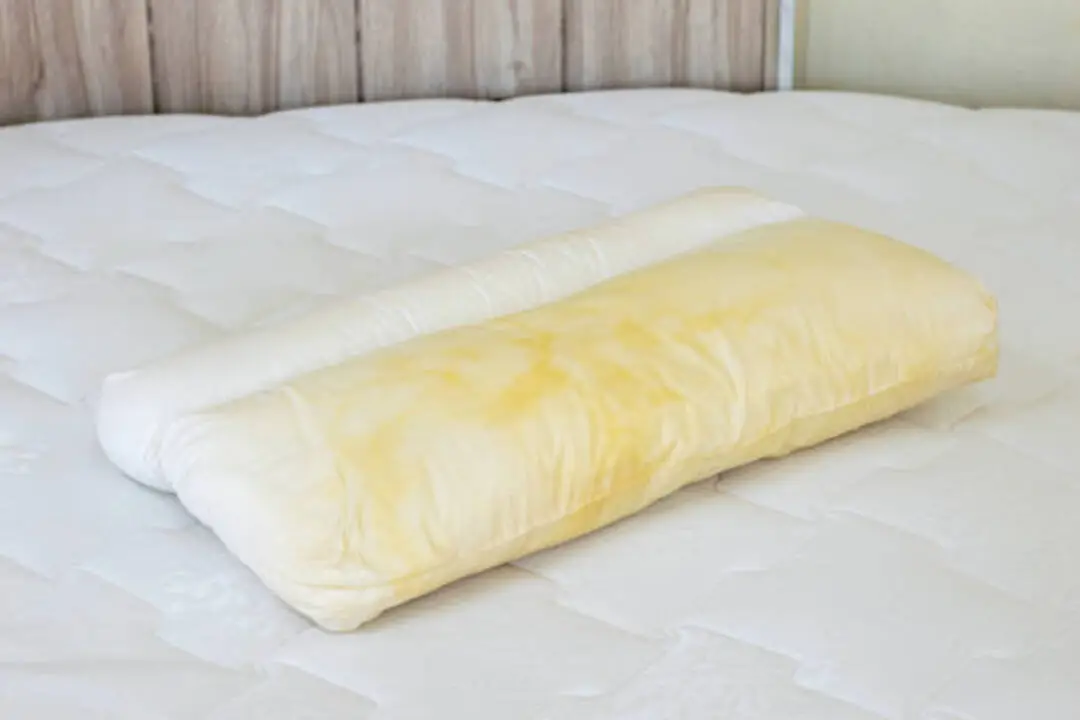Hard water stains on your porcelain sink can be an unsightly nuisance. They’re a common issue, often caused by mineral deposits from the water in your household.
This blog post comes to your rescue, providing effective tips and tricks for easy removal, factors to consider during the process, mistakes you should avoid, and preventive measures to keep those annoying hard water stains at bay.
Dive in; transform your stained sink into one that gleams!
KEY INFORMATION
- Hard water stains are caused by mineral deposits from the water in your household, such as calcium and magnesium.
- To remove hard water stains from your porcelain sink, you can use white vinegar, lemon juice or vinegar, and hydrogen peroxide.
- Avoid using harsh abrasive materials when cleaning your porcelain sink to prevent damage.
- Take safety precautions when removing hard water stains, such as wearing protective gloves and following instructions on cleaning product labels.
- Test cleaning products on a small area of the sink before applying them to the entire surface.
- Prevent future hard water stains by maintaining a regular cleaning routine and considering installing a water softener system.
Understanding Hard Water Stains

Hard water stains occur when mineral deposits from the water build-up on surfaces, leaving behind unsightly marks.
What is hard water?
Hard water is water filled with a lot of minerals. The most common ones are calcium and magnesium. These minerals get into the water when they move through soil and rock. Hard water is not bad for your health, but it will leave stains on your things.
This happens because the hard water dries up and leaves the minerals behind. These can make spots on glass, dishes, or even sinks! Light gray or white marks are often seen where hard water has dried up.
What causes hard water stains?
Hard water stains are caused by the minerals in hard water, such as calcium and magnesium, that can build up and leave behind residue on surfaces like porcelain sinks. When the hard water evaporates, it leaves these minerals behind, creating stubborn stains.
The longer these stains are left untreated, the harder they become to remove. This is why it’s important to address hard water stains as soon as you notice them to prevent them from becoming more difficult to clean later on.
How to tell if you have hard water
If you’re not sure if you have hard water, here are some signs to look for:
- Soap doesn’t lather well and leaves a film on your skin.
- Your clothes feel stiff after washing them.
- You see white or yellowish spots on your dishes, faucets, or showerheads.
- Your pipes get clogged easily with mineral deposits.
- Your hair feels dry and dull even after washing it.
Factors to Consider When Removing Hard Water Stains

Consider the material of your porcelain sink, take safety precautions, and test cleaning products before using them.
1. Porcelain sink material
Porcelain sinks are commonly found in households and are known for their durability and aesthetic appeal. When it comes to removing hard water stains from a porcelain sink, the material of the sink is an important factor to consider.
Porcelain is a delicate material that can be easily scratched or damaged by abrasive cleaners or tools. It is essential to use non-abrasive cleaning products when tackling hard water stains on a porcelain sink.
Additionally, avoid using harsh scrub brushes or scouring pads that can leave scratches on the surface of the sink. By treating your porcelain sink with care and using gentle cleaning methods, you can effectively remove hard water stains without causing any damage.
2. Safety precautions
To ensure your safety when removing hard water stains from your porcelain sink, here are some important precautions to keep in mind:
- Wear protective gloves to shield your hands from any chemicals or cleaning agents.
- Open windows or turn on ventilation to provide adequate airflow while cleaning.
- Avoid mixing different cleaning products together as this can create hazardous fumes.
- Read and follow the instructions on the labels of cleaning products carefully.
- Keep children and pets away from the area when using cleaning agents.
- Test any new cleaning product on a small, inconspicuous area of the sink before applying it to the whole surface.
3. Testing cleaning products
To make sure the cleaning product you’re using works well on your porcelain sink, follow these steps:
- Read the instructions carefully before using any cleaning product.
- Test the cleaner on a small, inconspicuous area of the sink to see if it causes any damage or discoloration.
- If there are no negative effects, apply the cleaner to the stained areas and let it sit for a few minutes.
- Gently scrub the stains with a soft sponge or cloth, using circular motions.
- Rinse the sink thoroughly with hot water to remove any residue from the cleaner.
- Dry the sink with a clean towel to prevent new water spots from forming.
Mistakes to Avoid When Removing Hard Water Stains

Using harsh abrasive materials can damage the porcelain sink, while ignoring safety precautions can put you at risk. Make sure to also test cleaning products before using them to avoid any unwanted reactions.
Avoid these mistakes, and keep reading for more tips on effectively removing hard water stains from your porcelain sink!
1. Using harsh abrasive materials
To avoid damaging your porcelain sink, it’s important to avoid using harsh abrasive materials. Here are some alternatives you can use instead:
- Gentle sponge or cloth: Opt for a soft sponge or cloth when cleaning your sink. This will help prevent scratching and damage to the surface.
- Non-abrasive cleaners: Look for cleaning products specifically designed for use on porcelain sinks. These cleaners are formulated to be gentle yet effective in removing stains without causing any harm.
- Baking soda paste: Mix baking soda with water to create a paste and apply it to the stained areas of your sink. Gently scrub with a soft sponge or cloth before rinsing thoroughly.
- Vinegar and water mixture: Create a mixture of equal parts vinegar and water and use it as a natural cleaner for your porcelain sink. This solution is mild yet effective in removing stains without causing any damage.
2. Ignoring safety precautions
To keep yourself safe while removing hard water stains from your porcelain sink, make sure to follow these important safety precautions:
- Use protective gloves to protect your hands from harsh cleaning chemicals.
- Open a window or turn on the ventilation fan to ensure proper air circulation during the cleaning process.
- Avoid mixing different cleaning products together, as this can create harmful fumes.
- Keep cleaning products out of reach of children and pets.
- Read and follow the instructions on the cleaning product labels carefully.
- If using bleach, dilute it with water according to the manufacturer’s instructions and avoid prolonged exposure.
- Rinse the sink thoroughly after cleaning to remove any residue that may be left behind.
3. Not testing cleaning products
When removing hard water stains from your porcelain sink, it is important to avoid the mistake of not testing cleaning products. Here are some reasons why testing cleaning products is important:
- Avoid damage: Testing cleaning products on a small, inconspicuous area of your porcelain sink helps you determine if the product will cause any damage or discoloration.
- Ensuring effectiveness: By testing the product beforehand, you can determine if it effectively removes the hard water stains from your sink. This way, you can avoid wasting time and money on a product that doesn’t work.
- Allergies and sensitivities: Testing the cleaning product allows you to check for any allergic reactions or sensitivities to the product’s ingredients. This is especially important if you have skin allergies or respiratory issues.
- Preventing further staining: Sometimes, certain cleaning products can actually make the staining worse or leave residue behind. By testing the product first, you can ensure that it doesn’t exacerbate the problem or leave behind any unsightly residue.
Effective Tips and Tricks for Removing Hard Water Stains
To remove hard water stains from your porcelain sink, try using white vinegar, lemon juice or vinegar, and hydrogen peroxide. Avoid abrasive cleaners and consider using baking soda for an extra boost.
1. Using white vinegar
Here’s how you can easily remove hard water stains from your porcelain sink using white vinegar:
- Mix equal parts of white vinegar and water in a spray bottle.
- Spray the solution onto the stained areas of your sink.
- Let it sit for about 10 – 15 minutes to allow the vinegar to break down the stains.
- Use a gentle sponge or cloth to scrub the stained areas.
- Rinse with hot water to remove any residue.
- Repeat if necessary until the stains are gone.
2. Using lemon juice or vinegar
Lemon juice and vinegar are effective natural cleaners for removing hard water stains from your porcelain sink. Here are the steps to use them:
- Squeeze fresh lemon juice or pour white vinegar onto a cloth or sponge.
- Apply the lemon juice or vinegar directly to the stained areas of your porcelain sink.
- Let it sit for a few minutes to allow the acid in the lemon juice or vinegar to break down the hard water stains.
- Scrub the stained areas gently using a soft sponge or cloth.
- Rinse the sink thoroughly with hot water to remove any residue.
3. Using hydrogen peroxide
To remove hard water stains from your porcelain sink, you can use hydrogen peroxide. Here’s how:
- Apply hydrogen peroxide directly to the stained areas of your sink.
- Let it sit for a few minutes to allow the hydrogen peroxide to penetrate the stains.
- Scrub gently with a non-abrasive sponge or cloth to lift the stains.
- Rinse thoroughly with hot water to remove any residue.
- Repeat the process if necessary for stubborn stains.
4. Using baking soda
You can also try using baking soda to remove hard water stains from your porcelain sink. Here’s how:
- Sprinkle a small amount of baking soda on a damp sponge or cloth.
- Gently scrub the stained areas of the sink with the baking soda.
- Rinse the sink thoroughly with hot water.
- Dry the sink with a clean towel.
Preventive Measures to Avoid Hard Water Stains

To prevent hard water stains from forming on your porcelain sink, establish a regular cleaning routine and make sure to dry the sink thoroughly after each use. Additionally, consider installing a water softener system or using a protective coating on your sink to minimize the buildup of mineral deposits.
If needed, you can also hire professional cleaning services to tackle tough stains and keep your sink looking pristine.
1. Regular cleaning routine
To keep your porcelain sink free from hard water stains, it’s important to maintain a regular cleaning routine. Here are some tips to help you keep your sink looking its best:
- Wipe down the sink after each use with a gentle sponge or cloth.
- Use hot water and a non-abrasive cleaner to remove any dirt or grime.
- For tougher stains, create a paste using baking soda and water. Apply the paste to the stain, let it sit for a few minutes, then scrub gently with a sponge or brush.
- Rinse the sink thoroughly after cleaning to remove any residue.
- To prevent future stains, consider installing a water softener system in your home.
2. Drying the sink after use
After using your porcelain sink, it’s important to dry it thoroughly. This simple step can help prevent hard water stains from forming. When water is left to sit on the surface of the sink, minerals in the water can evaporate and leave behind unsightly stains.
By drying the sink with a towel or cloth after each use, you can remove any remaining moisture and reduce the chances of hard water stains appearing. So remember, take a few seconds to dry your sink and keep it looking clean and stain-free.
3. Installing a water softener system
To prevent hard water stains in your porcelain sink, consider installing a water softener system. A water softener system works by removing the minerals that cause hard water, such as calcium and magnesium.
This can help prevent the formation of hard water stains on your sink. With a water softener system in place, you won’t have to worry about constantly battling stubborn stains. It’s an effective long-term solution for keeping your porcelain sink looking clean and shiny.
4. Using a protective coating
To protect your porcelain sink from future hard water stains, consider using a protective coating. This can help create a barrier between the surface of your sink and the minerals in the water that cause staining.
There are different types of coatings available, such as acrylic or silicone-based sealants. These coatings can be applied to the sink’s surface according to the manufacturer’s instructions, providing an extra layer of protection against hard water stains.
By applying a protective coating regularly, you can make it easier to clean and maintain your porcelain sink over time.
Using a protective coating on your porcelain sink is an effective preventive measure against hard water stains. The coating acts as a shield, preventing mineral deposits from sticking to the surface and causing unsightly staining.
5. Professional cleaning services (optional)
If you’re finding it difficult to remove hard water stains from your porcelain sink, you may consider hiring professional cleaning services. They have the knowledge and expertise to effectively remove tough stains and restore the shine of your sink.
Professionals use specialized cleaning products and techniques that are safe for your porcelain sink. By opting for professional cleaning services, you can save time and effort while ensuring that your sink looks sparkling clean.
Frequently Asked Questions

1. What are some effective methods to remove hard water stains from a porcelain sink?
You can use a mix of water and vinegar, or lemon juice and vinegar to clean the stains. You can also try nonabrasive cleaning with watered-down bleach.
2. How do I get rid of brown hard water stains in my toilet?
Cleaning stains on sinks or toilets requires some tips for cleaning that are different than removing tough ones from a ceramic sink. Using vinegar could be an effective method.
3. Why is using only natural methods for cleaning important when dealing with porcelain sinks?
Using natural products like vinegar ensures you’re not damaging your sink while also ensuring the removal of even the toughest brown stains.
4. What mistakes should I avoid when removing hard water Stains from my porcelain sink?
One mistake is not considering what type of stain it is before starting to clean it up, always ensure that you know this beforehand to choose the right method.
Conclusion and final thoughts
To easily remove hard water stains from your porcelain sink, remember these tips and tricks: use white vinegar or lemon juice to dissolve the stains, avoid abrasive cleaners that can damage the sink, and consider using hydrogen peroxide for tougher stains.
When removing the stains, factors like your sink’s material and safety precautions are important to consider. Avoid common mistakes such as using harsh abrasives or not testing cleaning products beforehand.
Lastly, take preventive measures like regular cleaning routines, drying the sink after use, and installing a water softener system to avoid future hard water stains.









